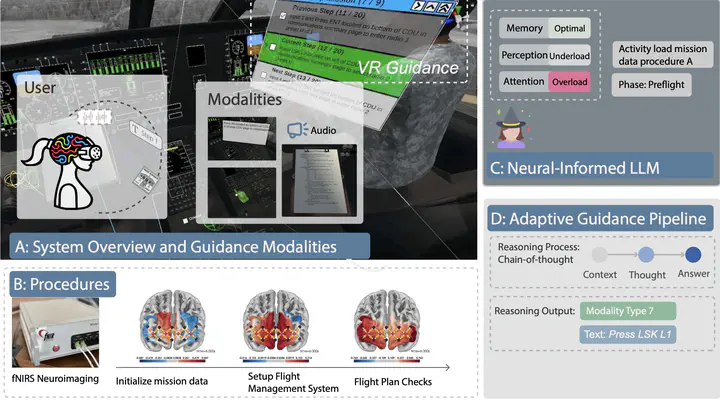AdaptiveCopliot

Pilots operating modern cockpits often face high cognitive demands due to complex interfaces and multitasking requirements, which can lead to overload and decreased performance. This study introduces AdaptiveCopliot, a neuroadaptive guidance system that adapts visual, auditory, and textual cues in real time based on the pilot's cognitive workload, measured via functional Near-Infrared Spectroscopy (fNIRS). A formative study with expert pilots (N=3) identified adaptive rules for modality switching and information load adjustments during preflight tasks. These insights informed the design of AdaptiveCopliot, which integrates cognitive state assessments, behavioral data, and adaptive strategies within a context-aware Large Language Model (LLM). The system was evaluated in a virtual reality (VR) simulated cockpit with licensed pilots (N=8), comparing its performance against baseline and random feedback conditions. The results indicate that the pilots using AdaptiveCopliot exhibited higher rates of optimal cognitive load states on the facets of working memory and perception, along with reduced task completion times. Based on the formative study, experimental findings, qualitative interviews, we propose a set of strategies for future development of neuroadaptive pilot guidance systems and highlight the potential of neuroadaptive systems to enhance pilot performance and safety in aviation environments.
More details will be released after publication